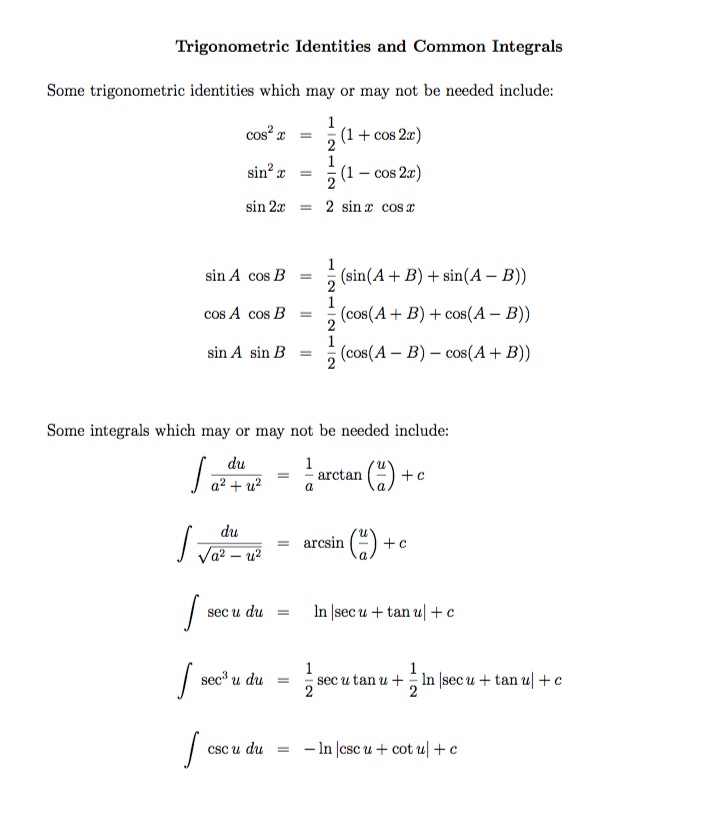Math 172 : Midterm 2
Tuesday, March 5: 6:10-8:00pm
| 1) | Approximately 50% the exam will be straight up integration problems
You will have to do at least one of each of the three types of integrals above. You may need to do a simple integration by parts.
|
|
| 2) | About 15% will involve Improper integral(s) (section 7.7)
|
|
| 3) | The balance of the exam will be on integral applications
|
|
| 4) | Some noteable exclusions from the exam are:
|
|
| 5) | A formula sheet (below) will be attachedto the exam. | |
| 6) | You are expected to evaluate sine, cosine and tan of multiples of Pi/6, Pi/3, Pi/4,
Pi/2 as well as evaluate inverse trig functions (arcsin, arccos, arctan) of 0, 1/2,1. Also you need to know ln(e)=1 and ln(1)=0. |
|
| 7) | Exam questions are variants of homework problems. Generally speaking the HW is a very good guide to the kinds of problems on the test. | |
| 8) | If you are well prepared, you should be able to do the exam in 50min but will have 1hr and 50min | |
| 9) | Remember our tutoring resources - both the Math Learning Center and review sessions held by Rob Malo. |
Formula Sheet that will be attached to Midterm
Click on the image to view the PDF.
TETT - Technology Enhanced Traditional Teaching Updated on: 07/24/2015.

